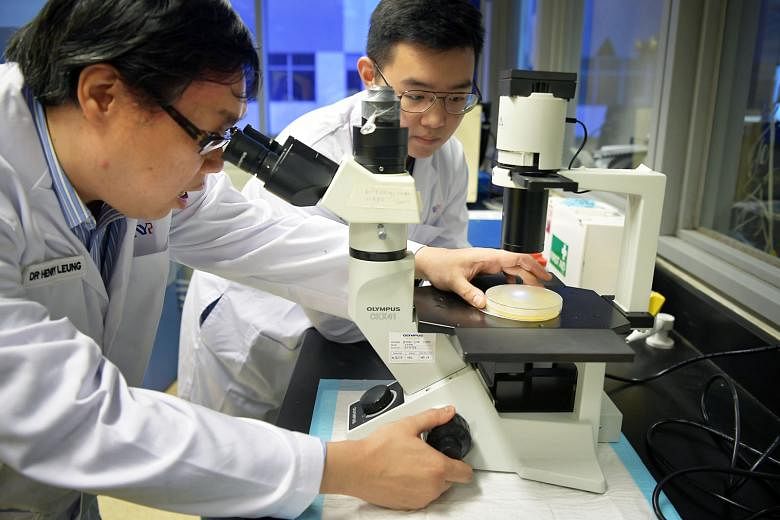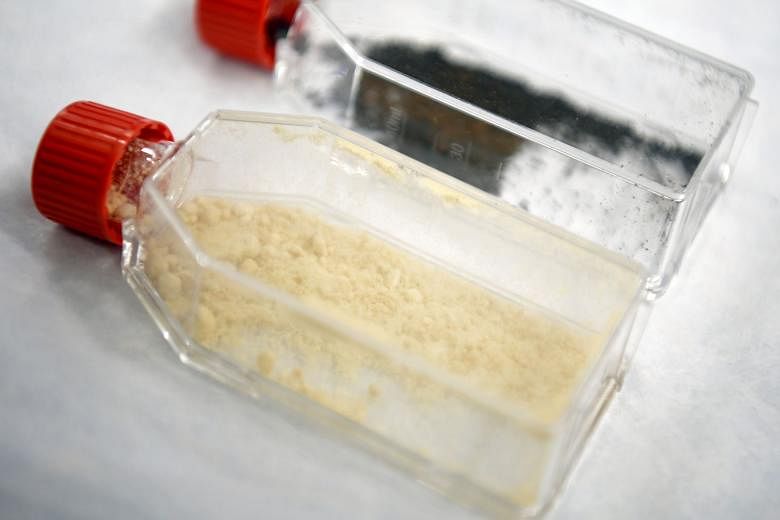Scientists in Singapore have found a process that can potentially produce biodegradable plastics at half the cost and in a manner that is less harmful to the environment.
While promising, it is still early days for the project, which may come to fruition only in three to five years, said Dr Henry Leung, leader of the research team from Nanyang Polytechnic, yesterday.
The breakthrough in making "greener" plastics involves using new bacteria and solvents like acetone.
The bacteria, Cupriavidus necator, eat nutrients in coffee waste and store them as a chemical called polyhydroxyalkanoate (PHA).
When the solvent is added, the bacteria die and release the PHA, which is used for making plastics that are environmentally friendly, said Dr Leung, 42, a senior specialist in pharmacology and toxicology and a senior lecturer at the polytechnic's school of chemical and life sciences.
The PHA helps degrade plastics more swiftly, he added.
This will lead to fewer plastic products such as bottles and bags clogging waterways and being eaten by animals, such as sea turtles and birds.
He also said such degradable products could one day replace microbeads in personal care products. Microbeads are tiny plastic balls found in beauty products like exfoliating facial washes.
When washed out to sea from drains, these can kill marine life and be harmful to people.
The making of PHA also pollutes the environment because the solvents typically used, like hexane, are more pollutive than acetone.
But the current process of producing PHA is very pricey, with 1g of PHA being sold at $28,000, said Dr Leung. He estimates his method of producing PHA would cost about half as much.
The way coffee is produced in Singapore also helps to save on costs, Dr Leung said.
"Coffee beans are roasted with sugar and butter, and these are enough to give the bacteria energy to produce PHA," he added.
His efforts join the growing global push for better ways to make plastics. For instance, they can be made from plant starch, which can degrade harmlessly and quickly. However, such sustainable plastics make up only 10 per cent of the whole plastics market, reported a Nature news article last year.
As team member Alvin Teo, 49, a senior lecturer in molecular biotechnology, said: "The project is in a very exploratory stage. It's up to industry players to see how far we can take this."
The next step for the team is to find business partners such as coffee companies and plastic manufacturers, as well as partner other researchers to improve the process and get it ready for the market, added Dr Leung.



